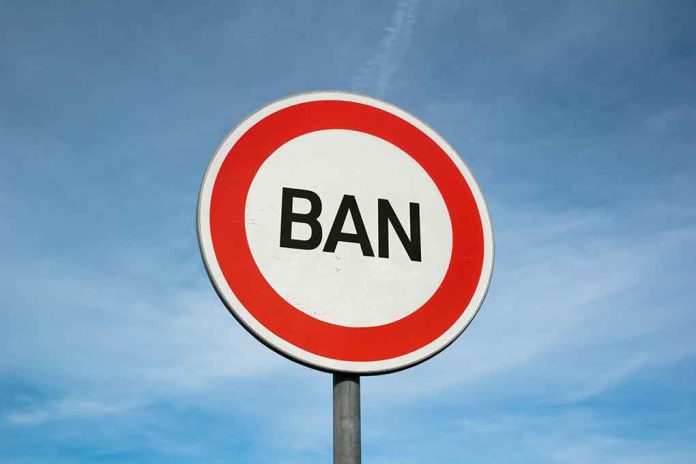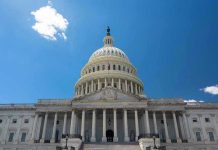
Canadian provinces retaliate against Trump’s tariffs by banning American alcohol sales, signaling a significant shift in North American trade relations.
Key Takeaways
- British Columbia, Nova Scotia, and Ontario are banning the sale of American alcohol in response to Trump’s tariffs.
- BC’s ban specifically targets alcohol from US Republican states, while other provinces target all American alcohol.
- The bans affect state-run liquor stores, which hold a significant share of the alcohol market in these provinces.
- Trump’s tariffs include a 25% tax on most Canadian and Mexican goods and a 10% tax on Canadian energy resources.
- Canadian leaders view the tariffs as a violation of North American alliances and plan retaliatory measures.
Canadian Provinces Take Bold Action Against US Tariffs
In a surprising turn of events, several Canadian provinces have announced bans on the sale of American alcohol in their government-run liquor stores. This move comes as a direct response to President Trump’s recent imposition of tariffs on Canadian goods. British Columbia (BC) has taken the lead by specifically targeting alcohol from US Republican states, while Nova Scotia and Ontario have opted for a broader ban on all American alcohol products.
The bans were announced shortly after President Trump signed an executive order imposing a 25% tax on most Canadian and Mexican goods, as well as a 10% tax on Canadian energy resources. These tariffs, according to the Trump administration, are aimed at addressing issues such as illegal immigration and drug trafficking. However, Canadian officials view the measures as an unwarranted attack on a long-standing ally.
🚨‼️Canadian Provinces Pull U.S. Liquor from Shelves in Retaliation to Trump's Tariffs 🍁🥃
In a spirited response to President Trump's recent tariffs, several Canadian provinces, including Ontario, Quebec, and British Columbia, have announced they will remove U.S. liquor… pic.twitter.com/Mi04krYFqJ
— Kristy Tallman (@KristyTallman) February 2, 2025
Economic Impact and Political Symbolism
The decision to ban American alcohol sales in state-run liquor stores is not merely symbolic. These stores hold a significant share of the alcohol market in their respective provinces. In British Columbia alone, American alcohol sales are worth nearly $1 billion annually. This move is expected to have a noticeable impact on US producers, particularly those in Republican-led states targeted by BC’s ban.
“President Trump’s 25% tariffs are a complete betrayal of the historic bond between our countries and a declaration of economic war against a trusted ally.” – BC Premier David Eby
BC Premier David Eby has been particularly vocal in his criticism of the tariffs, describing them as a betrayal and an economic attack on a trusted ally. His strong words reflect the sentiment shared by many Canadian leaders who view Trump’s actions as a violation of long-standing North American alliances.
Canada’s Broader Response to US Tariffs
The alcohol bans are just one part of Canada’s multi-faceted response to the US tariffs. Canadian President Justin Trudeau has announced plans to impose taxes on $155 billion worth of US products. This retaliatory measure, combined with the provincial alcohol bans, demonstrates Canada’s resolve to stand firm against what it perceives as unfair trade practices.
“As British Columbians, and as Canadians, we will stand strong and united in the face of this unprecedented attack.” – BC Premier David Eby
The alcohol bans have garnered mixed reactions within Canada. While some politicians, like MP Charlie Angus, have expressed satisfaction with the removal of American alcohol from store shelves, others worry about the potential economic repercussions of escalating trade tensions. Nonetheless, the move has united Canadians in their opposition to what they see as unjust tariffs imposed by their southern neighbor.
Canada’s biggest province said it will remove American products from its government-run liquor stores as part of its response to President Donald Trump’s 25% tariffs on Canadian imports. https://t.co/3Z9ZppTR6c
— Bloomberg Markets (@markets) February 2, 2025
As this trade dispute unfolds, it’s clear that the relationship between the United States and Canada is entering a new, more contentious phase. The alcohol bans serve as a tangible reminder of the far-reaching consequences of international trade policies and the complex web of economic interdependence between these long-standing allies.














